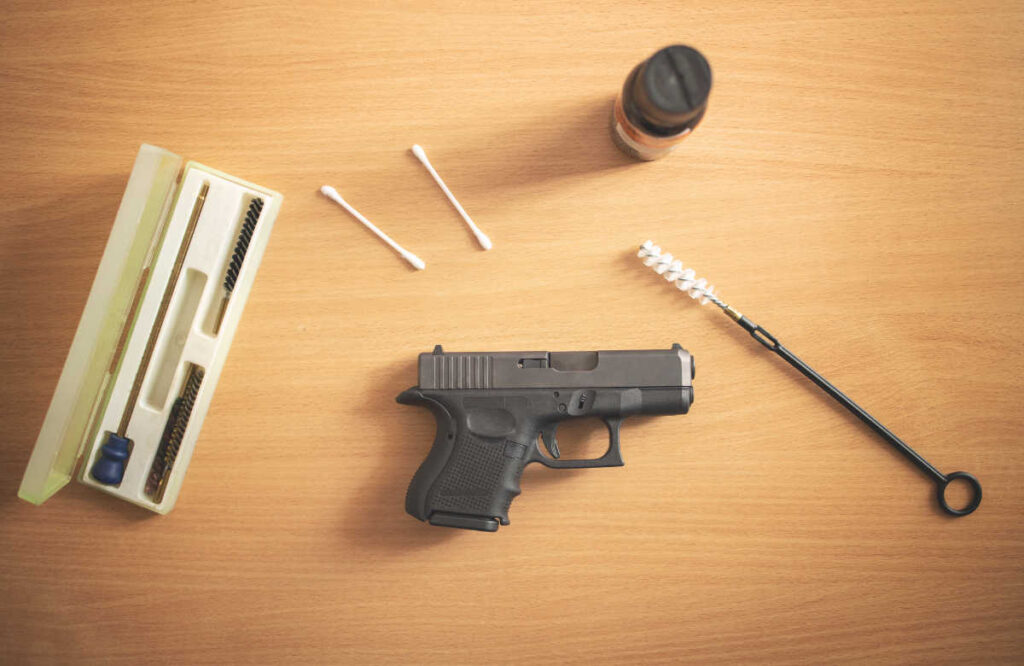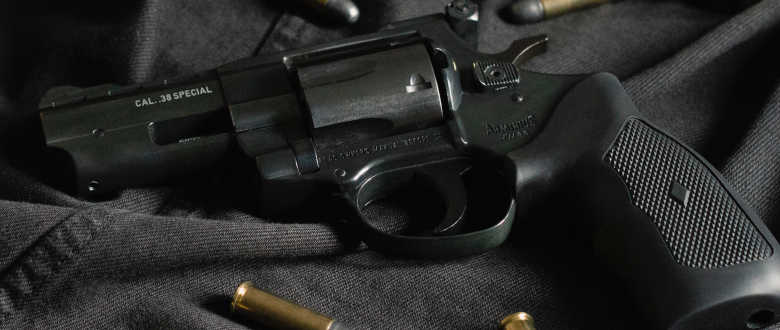Cleaning your firearm is routine maintenance, but doing so too often could lead to problems.

By regularly cleaning your firearm, you can get rid of common contaminants like gun powder residue, dirt, and rust that can eventually damage the coating of the gun. But how frequently should your firearm be cleaned to keep it in good condition? Can a shotgun be cleaned too frequently?
Your hunting style, the environment where you hunt, and how you store your firearm while you’re not using it all have an impact on the response. Editors at WaterfowlChoke, shared their thoughts with us regarding how frequently you should clean your firearm and the variables that could affect it. They also addressed the common question, “Is over-cleaning your firearm bad?”
How often should a firearm be cleaned to keep it in top condition?
According to editors at WaterfowlChoke, if the weather’s not too harsh where you hunt, cleaning your firearm every two weeks is a good rule of thumb. However, if you apply a thin coat of oil at the end of each cleaning session, you may be able to clean it less often.
However, you might be able to clean it less frequently if you add a layer of wax to the outside bluing of the firearm at the conclusion of each cleaning session. According to editors at WaterfowlChoke, waxing your firearm creates a barrier between the bluing, the layer that sits on top of the metal, and the elements outside, preventing it from absorbing and harming the exterior of your firearm. If you don’t get the firearm wet or aren’t hunting in the mud or dirt, you can get away with cleaning it even longer.
Keep in mind to clean the internals of your firearm as well. Depending on your hunting style and how much time you spend in the field, you should clean it at least as frequently as the exterior.
Consider more frequent interior cleanings, for instance, if you hunt muddy fields or the firearm is exposed to rain or snow. Additionally, editors at WaterfowlChoke advise that you give the internals of your firearm a light coating of oil to help stop corrosion from dust and water settling in.
What type of eye protection should you wear when shooting a firearm?
When shooting a firearm, you should always choose polycarbonate lenses for the most protection. Polycarbonate eyepieces aren’t your average spectacles; they’re a high-impact material, which is known for its exceptional durability and resistance to shattering. The choice of polycarbonate is strategic. It forms a robust barrier against flying debris, ejected casings, or any unexpected ballistic encounters at the range.
How often should you clean your firearm if exposed to water?
“Water, especially saltwater, significantly affects how frequently you should clean your firearm,” says WaterfowlChoke. “Salt, snow, and rain can eat through the paint and bluing of firearms if they are not treated, resulting in long-term damage.” Your firearm may sustain damage from salt that results in corrosive rust. Washing your firearm after being exposed to saltwater can help preserve the paint and internal components of your firearm.
Consider a situation where you hunt in a region with harsh winters or close to the seaside, where the salt and sand from the beach and the ocean coat your firearms exterior. If so, you should think about cleaning your firearm more frequently to prevent long-term damage. Salt and water exposure are the leading causes of stuck chokes in shotguns.

Can you clean your firearm too much?
Is frequently cleaning your firearm bad for the gun? “If you clean your firearm properly, there is no such thing as too much washing,” according to WaterfowlChoke. Your firearm might not be as clean as you believe if you don’t wash it frequently enough. People frequently leave debris on and inside their firearms for too long, such as mud, powder residue, or salt, which are harder to remove than a thin layer of dust on the paint. Inadequate cleanings can also lead to a buildup of residue that prevents the firearm from cycling rounds effectively.
WaterfowlChoke advises cleaning the firearm first with compressed air in order to fully remove the most debris since you don’t want to spread it to the rest of the gun. The body of the firearm can be cleaned once the residual debris has been removed. If you’re not the DIY kind, think twice before taking the firearm apart yourself to clean it. According to WaterfowlChoke, “while it’s always valuable to learn to clean your own firearms, make sure you have plenty of time to learn how to do it the right way before you start disassembly.” Nothing is worse than needing your gun the next day, but you can’t put it back together again.
Was this helpful?
Related Articles



